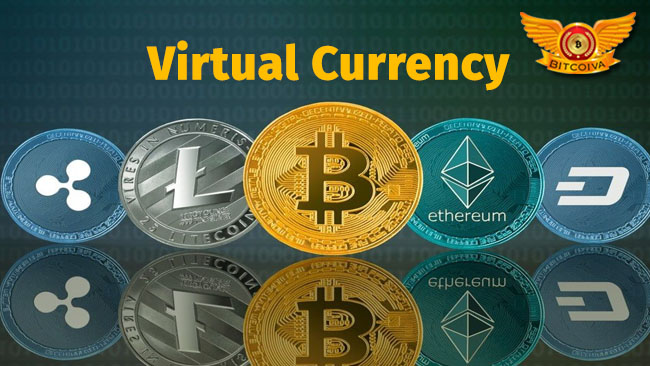What is virtual currency?
A virtual currency is a value representation that can only be accessible over the internet. Special software, mobile applications, or computer programs are used to preserve and transact it. Virtual currency transactions take place through secure, specialized networks or the Internet. Individual companies or groups of developers typically issue them because they are unregulated.
Other forms of digital currencies, such as the top cryptocurrency in India, and tokens issued by private entities, are included in virtual currencies, which are a subset of digital currencies. Virtual currencies provide the advantages of quicker transaction speeds and simplicity of usage. Due to their lack of regulation, virtual currencies face the problem of being hackable and giving no legal recourse to investors.
The term “virtual currency” refers to a type of digital currency. They are issued by private parties, such as a group of developers or organizations, and are exclusively designed for online use; unlike paper money, they do not have a physical form. As a result, they differ from central bank digital money, which are digital representations of central bank-issued cash (CBDC).
The European Central Bank (ECB) established the term “virtual currency” in 2012 to categorize different forms of “digital money produced and managed by its producers and used as a payment mechanism among members of a specific virtual community.” 1 Virtual currencies are “digital representations of value that act as a unit of account, a store of value, and a medium of exchange,” according to the Internal Revenue Service (IRS) of the United States.
Both definitions may not be totally valid today, despite being wide enough to embrace a variety of virtual currency characteristics.
Since 2012, the universe of virtual currencies has grown significantly, now including a wide range of currencies that do not fit the ECB’s criteria. Certain cryptocurrency India, such as Ripple’s XRP, which are classified as virtual currencies, are not tightly regulated or utilized by a virtual community.
In mainstream culture, virtual currencies have likewise failed to catch on as a payment mechanism or means of exchange. They are only used in limited circumstances, such as in gaming communities or as a speculative investment item. It’s also debatable if they’ve established themselves as a store of value, similar to gold. There’s also the issue of regulation to consider. Despite the fact that virtual currencies are still unregulated in the great majority of financial countries, this is steadily changing. El Salvador has made Bitcoin, the cryptocurrency with the largest market capitalization, legal money. Virtual currencies are unregulated in the United States, which has some of the world’s most sophisticated financial markets. Authorities, on the other hand, are seriously considering regulation. The Securities and Exchange Commission (SEC), which regulates financial markets, wants to regulate bitcoin exchanges. Stablecoins, another type of virtual money, are also set to be regulated. 3 Trades involving some forms of virtual currency, such as cryptocurrencies, are taxed by the IRS.
Virtual Currencies: What Are They and How Do They Work?
Virtual currencies are classed as follows based on their operational network:
Closed virtual currency account:
As the name implies, a closed virtual currency functions in a regulated and private environment. It cannot be transferred into another virtual money or a fiat currency in the real world. Currency in gaming systems is an example of a closed virtual currency. Such currencies can be utilized in their particular contexts (in this example, games), but they cannot be turned into real money. Airlines miles are another example of a closed virtual currency. They are issued by private parties, may only be used to purchase further miles, and cannot be exchanged for cash.
Open a virtual currency account:
Because they may be changed into other types of money, open virtual currencies are also known as convertible virtual currencies. They function in open ecosystems and may be exchanged for other currencies both within and outside the platform. Stablecoins and cryptocurrencies are examples of open virtual currency. The two most valuable cryptocurrencies by cryptocurrency market capitalization, Bitcoin and Ethereum, may be exchanged for other cryptocurrencies or fiat currencies. The IRS considers this conversion to be a commerce transaction, thus it is taxed.
Though most open virtual currencies are decentralized, some, such as Ripple’s XRP, are designed to be centralized, which means a single agency is in charge of their production and distribution.
Get registered here for More offers and Benefits :https://www.bitcoiva.com/register/22102147
Visit us on: www.bitcoiva.com

